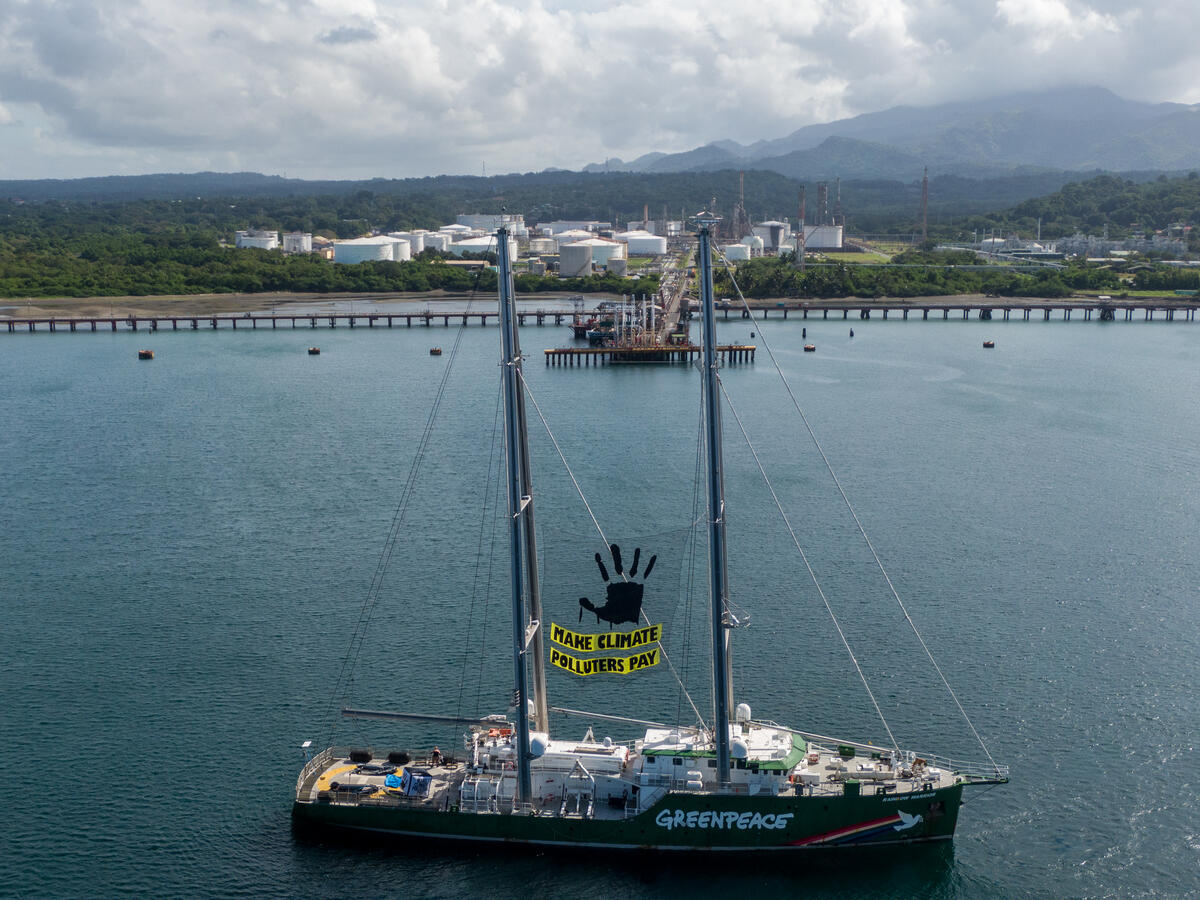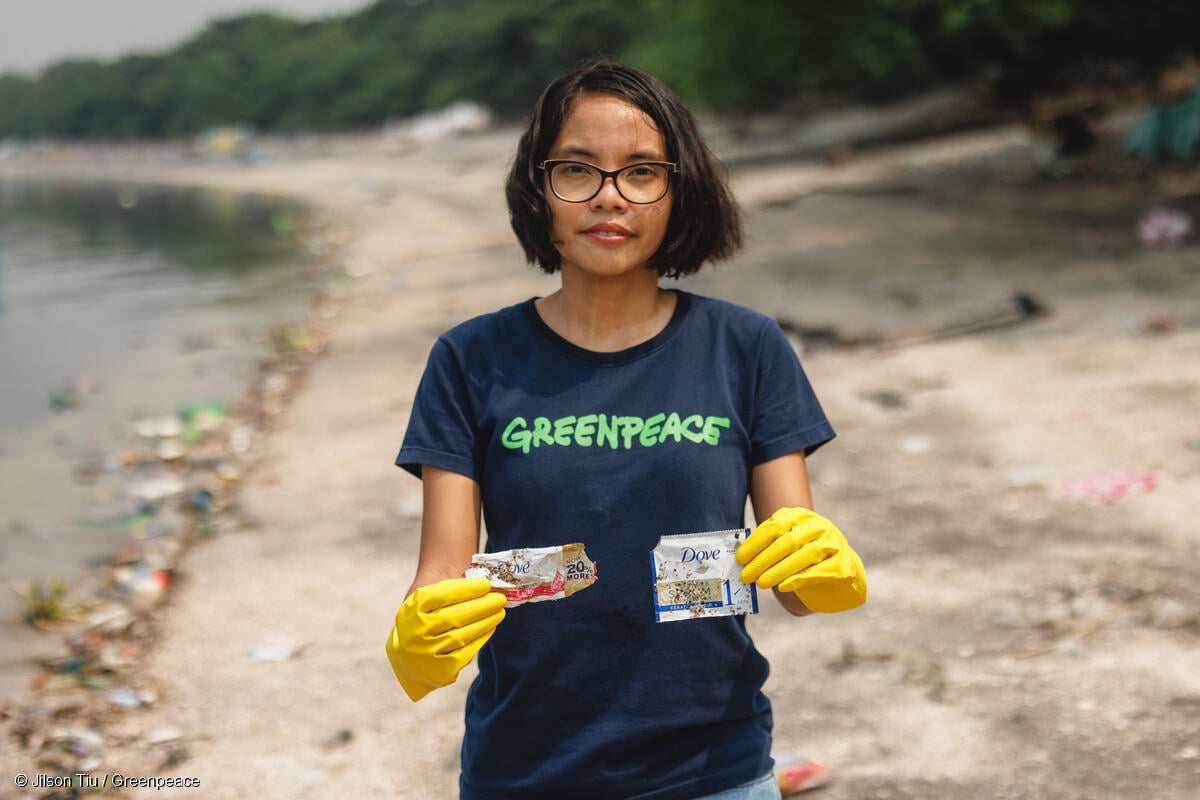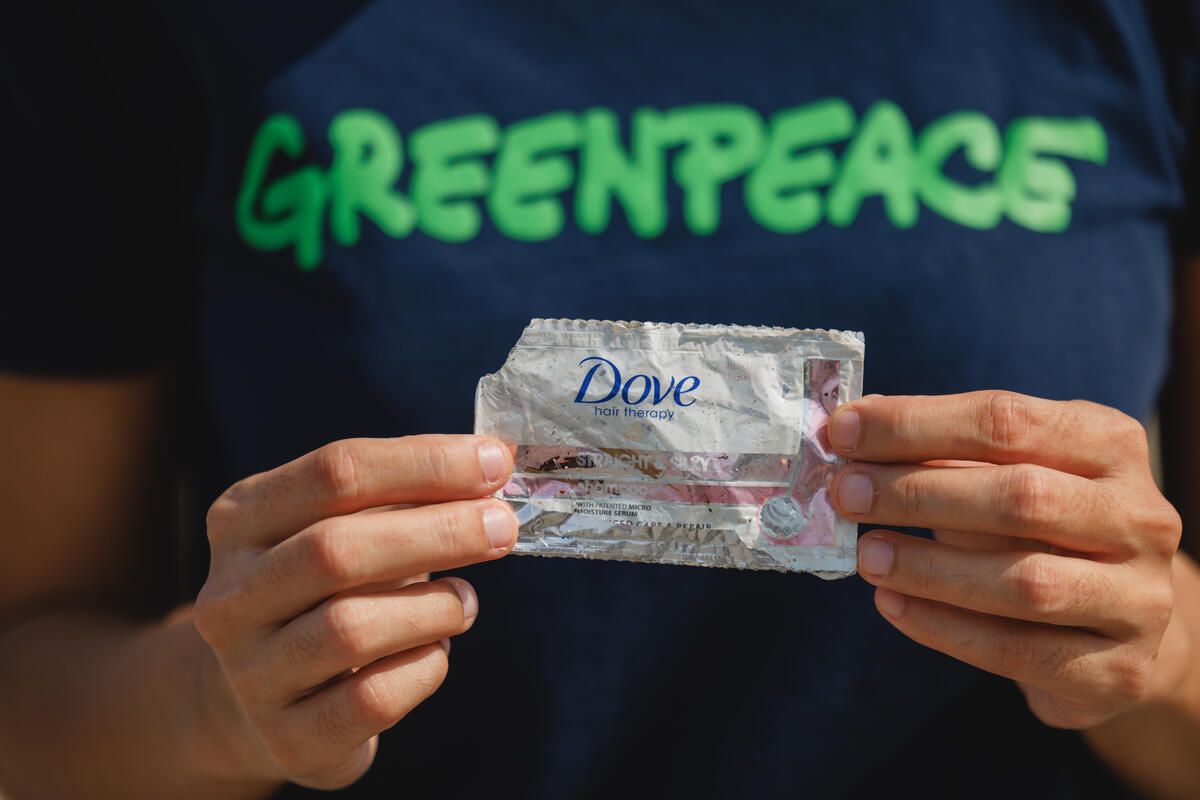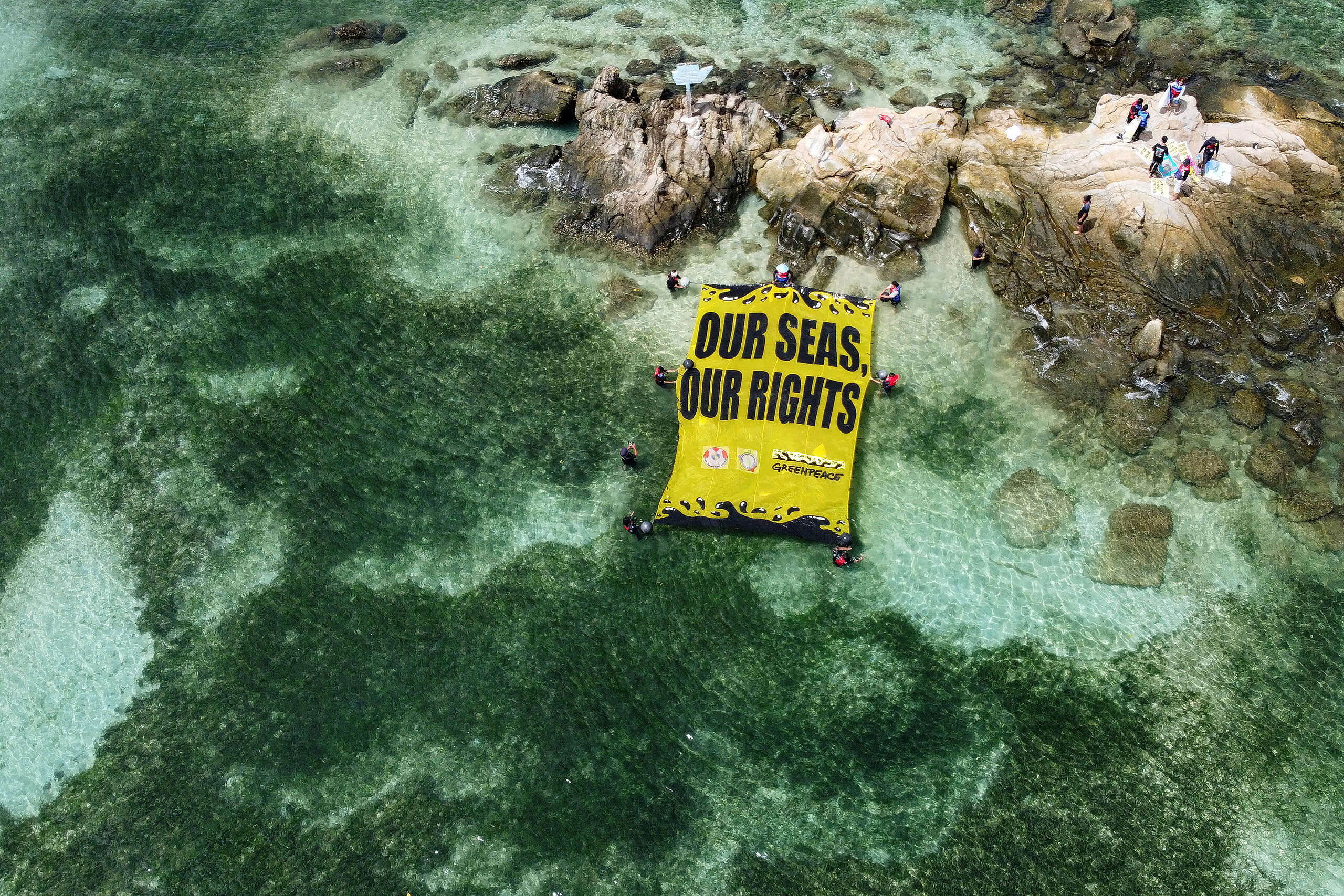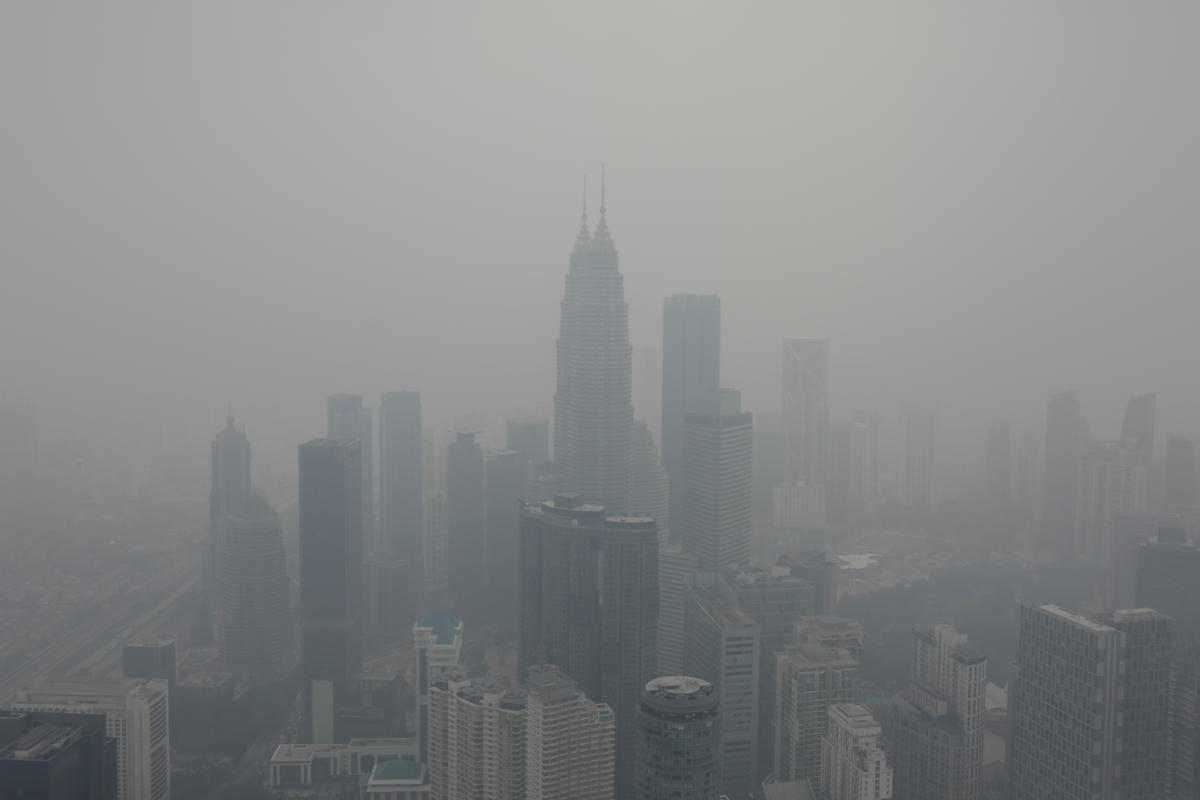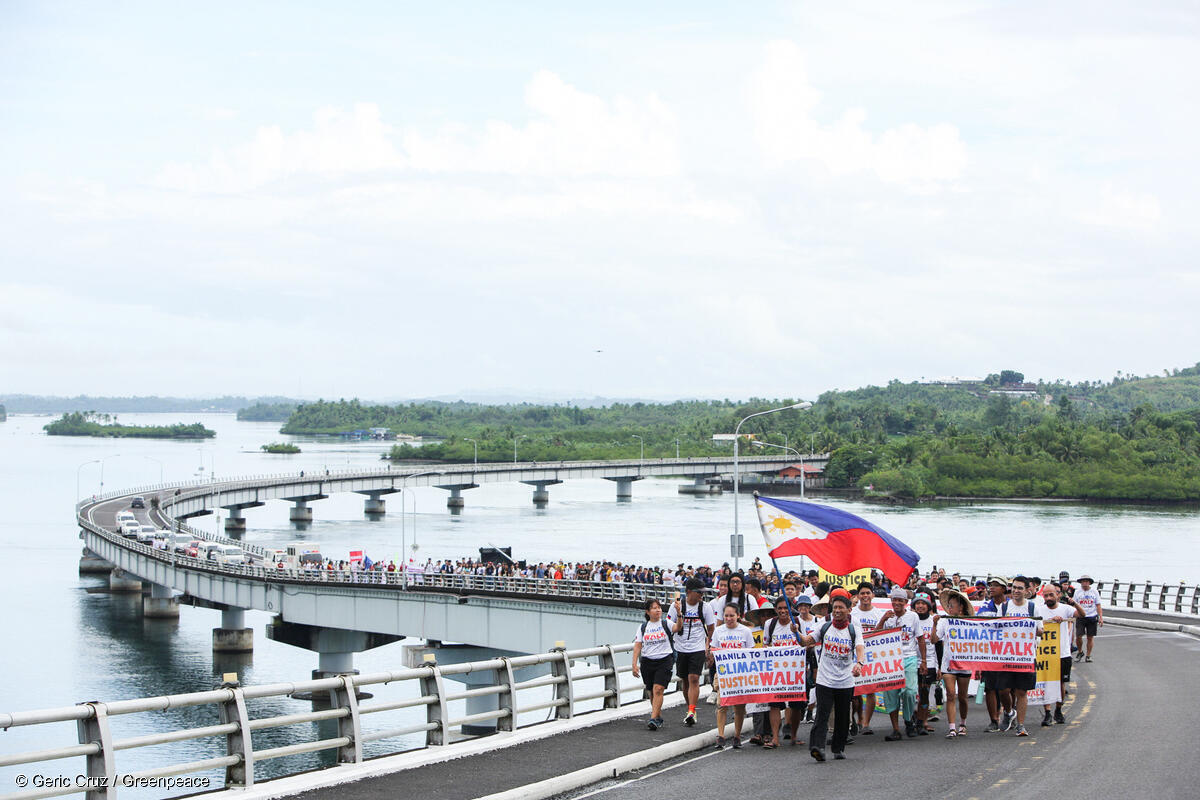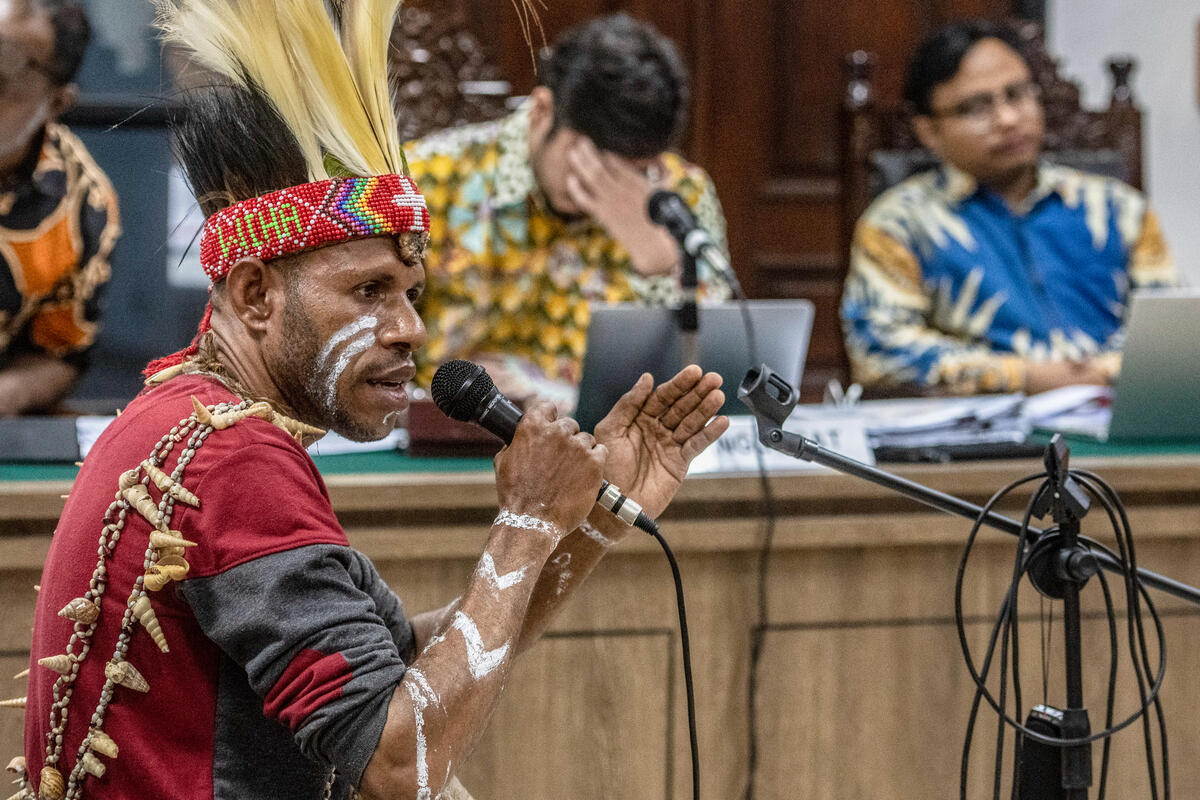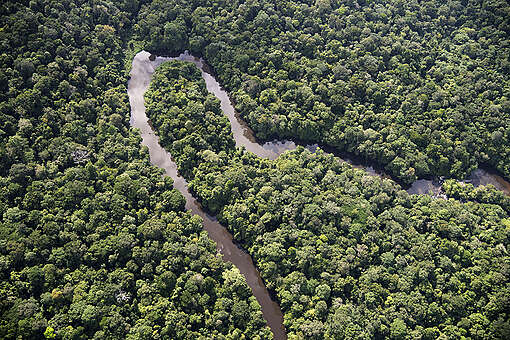-
Indonesian President’s COP28 Speech Parodied Over Food Estate Failures
Activists have parodied Indonesian president Joko Widodo’s disastrous food estate spruiked yesterday in his speech to the United Nations climate talks in Dubai
-
Greenpeace activists block Shell import terminal in support of Filipino climate-impacted communities
The fossil fuel companies most responsible for the climate crisis have become rich by exploiting people and the planet. Governments should make them pay for the damage their operations cause.
-
‘Real Beauty, Real Harm’: 3 ugly truths behind Dove’s ‘Real Beauty’
Dove’s chief execs will tell you they care about women and girls. They’re spending millions on ‘Real Beauty’ campaigns to convince you that their brand is a force for good. But behind their public image lies a true story of real harm.
-
Unilever sells 1700 highly-polluting throwaway plastic sachets per second, Greenpeace reveals
Consumer goods giant Unilever is selling 1700 highly-polluting plastic sachets every single second, fuelling the global plastic pollution crisis and dumping huge amounts of waste on countries in the Global South, according to new figures released today by Greenpeace International.
-
Greenpeace Philippines calls for climate accountability law as Rainbow Warrior docks in Manila
MANILA, Philippines —Greenpeace and communities today called on the Philippine government to enact a climate accountability (CLIMA) law that will hold corporate climate polluters responsible for harms caused by climate…
-
Fishing communities coalition launches with demand for coastal reserves
"If the sea ecosystem is healthy and we have the power to protect it from destructive business activities, we’re not only protecting the future of the island, but also ensuring a quality life for our future generations."
-
Renewed calls for ASEAN to prioritise and protect citizens’ rights to clean air from transboundary haze
With the combined reality of a positive Indian Ocean Dipole and El Niño, Singapore, Malaysia, Thailand, and Indonesia governments have started warning their citizens to prepare for possible transboundary haze. But warnings are not enough.
-
Typhoon Haiyan survivors for the 2023 Climate Justice Walk
The Climate Justice Walk does not end in Tacloban. Our real destination is in people’s hearts and minds- for climate hope to take root and yield results.
-
Verdict a setback for Awyu Indigenous People and Papuan forests
Regret over a court’s rejection of Awyu People's environmental and climate change lawsuit challenging the issuance of an environmental permit for a company to clear Awyu traditional forest lands.
-
Greenpeace Deplores Indonesian Government’s Absence at Congo Three Basin Summit
Greenpeace Indonesia has called out the Indonesian government’s failure to attend the Three Basins Summit in Brazzaville, Congo on October 26-28, a new initiative where efforts to save tropical rainforests from destruction were the agenda.


